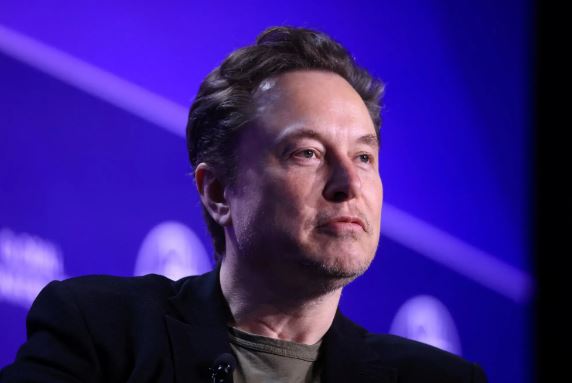Tesla shareholders have reaffirmed a pay award exceeding $45 billion for CEO Elon Musk, following its initial nullification in a legal challenge. The vote result, announced at Tesla’s annual meeting at its Austin, Texas headquarters on Thursday, signifies continued shareholder confidence in Musk and may influence the judge who previously voided the award to reconsider.
Support for the pay package, primarily consisting of stock options, will reassure Musk’s supporters, who feared rejection might lead him to reduce his involvement with Tesla or even resign. Tasha Keeney, director of investment analysis at ARK Invest, a major Tesla investor, emphasized Musk’s crucial role in the company’s success, saying, “I think it’s very important that Elon stays at the helm.”
Conversely, the vote was a setback for those advocating for CEO accountability and reasonable executive compensation. Kristin Hull, founder and chief investment officer of Nia Impact Capital, which has criticized Tesla’s workplace conditions, argued, “It’s a higher pay package than we have seen in the United States and I don’t think it sets a good precedent.”
The reaffirmation may also bolster Musk’s position as the world’s richest person, currently valued at over $200 billion. Addressing shareholders post-vote, Musk reiterated his commitment to Tesla, clarifying that the pay package is not in cash, so he can’t just “cut and run.”
Tesla shares rose ahead of the vote’s official announcement after Musk indicated on X (formerly Twitter) that the pay plan was passing by a wide margin. The board called for the vote in response to a ruling by Chancellor Kathaleen St. J. McCormick of the Delaware Court of Chancery. In January, Chancellor McCormick agreed with dissenting shareholders who argued that the 2018 pay package was excessively generous.
The board hoped that renewed shareholder approval would mitigate Chancellor McCormick’s finding that the 2018 vote was compromised due to undisclosed conflicts of interest among board members linked to Musk. Garrett Nelson, a stock analyst with CFRA Research, suggested that the vote strengthens Tesla’s case, though some legal experts doubted it would prompt a revision of the ruling. Tesla acknowledged that the vote might not resolve the case definitively.
Under the 2018 pay award, Musk holds 20.5 percent of Tesla’s shares, and just under 13 percent excluding his brother, Kimbal Musk’s shares. Shareholders also approved a proposal to move Tesla’s corporate registration to Texas, driven by perceived biases from Delaware courts, although this will not affect the Delaware case.
A shareholder measure calling for Tesla to refrain from interfering with unionization efforts and to negotiate in good faith was rejected. Musk has often expressed hostility towards unions, and Tesla has refused to negotiate with striking mechanics in Sweden for nearly six months. Tesla did not immediately disclose vote totals for any proposals.
The compensation vote highlighted the divide between those who view Musk as a transformative figure in the auto industry and critics frustrated by his polarizing statements on X and recent declines in Tesla sales and earnings. Robyn Denholm, Tesla’s board chair, defended Musk’s leadership, stating that investors benefited significantly from his guidance and that the company was obligated to honor his compensation.
Nevertheless, some shareholders were troubled by recent declines in Tesla’s sales and profits and Musk’s controversial statements on X. Major institutional investors like Norges Bank Investment Management and the California Public Employees’ Retirement System (CalPERS) voted against the pay package.
Tesla shares have fallen over 25 percent this year, despite a 14 percent rise in the broader stock market. Tesla’s market value peaked at $1.2 trillion in 2021 but has since dropped to around $580 billion. The 2018 package awarded Musk stock options worth tens of billions if he met challenging revenue or profit targets and raised the company’s stock value to $650 billion.
Most targets seemed unattainable in 2018 as Tesla struggled with the Model 3 production. However, Tesla’s business surged, and the market value surpassed the $650 billion target, allowing Musk to collect the options. For the pay measure to withstand legal challenges, it required approval from a majority of voting shares, excluding those held by Elon and Kimbal Musk.
The legal battle over Musk’s compensation is ongoing, but the shareholder vote significantly strengthens Tesla’s position.

